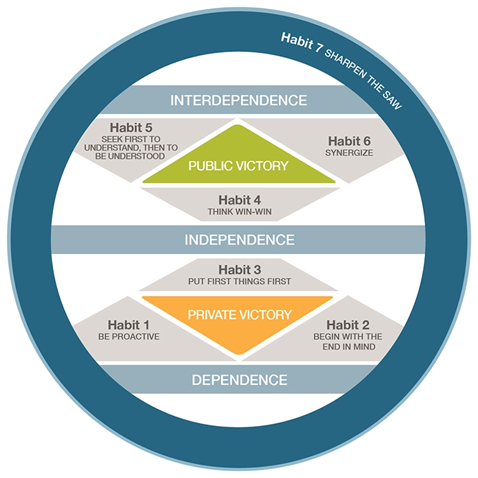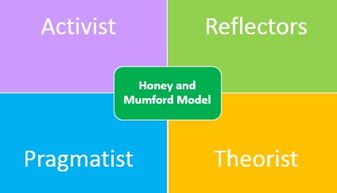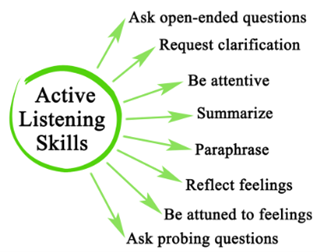MSc Management Personal Effectiveness Assignment Sample 2023
Introduction
In this report, the entire leadership style and attributes have been analysed by understanding the different scopes of the report and briefing the entire research into various parts. The first part of the report will be discussing the different skills of Mark Zuckerberg, the Chief Executive Officer of Meta, the company owning prominent social media such as Facebook, and Instagram.
The current example of Mark Zuckerberg using leadership skills and behavioural attributes will be identified, and with a case study from research, scholars will be provided. The model of Covey’s 7 Habits will be used to understand the effectiveness of Mark Zuckerberg’s personality, and the entire learning pattern will be concluded by evaluation of the self skills with Honey and Mumford’s model of learning.
Task 1- Case study review
1) Identifying the skills and behaviour of Mark Zuckerberg by using Covey’s 7 Habits
The application of the model of Covey’s 7 habits to analyse and understand the effective skills of Mark Zuckerberg, the CEO of Meta, had been stated in the application of the model of Covey’s 7 habits. The reference of a scholarly article has found and described the entire paradigm of Covey’s 7 habits, the habits explore the pre-established forms and thus, are no amount of additions or exaggerations (Covey and Covey, 2020).

Figure 1: Covey’s 7 habits
(Source: Covey and Covey, 2020)
The first habit Covey states are that the leader has the calibre of thinking in a mind that is decluttered, has a specific goal and is more attracted towards building a clarified success. The leadership trait that had been implied by the research study on Mark Zuckerberg, has made the point clear that the Y leadership had been better expressed by the CEO of Meta (Quesnell, 2018).
Mark Zuckerberg had been the person that had a critical thinking rationale from an early age, which is evident from the skill of “sharpening the saw”, or renewal of work motivation.
The motivation of a leader, as in the case of Mark Zuckerberg is more found in the leader having a better vision for Meta, which is signified in Horizon Home, the Interactive platform and more in the virtual cloud interaction.
More appropriately known among the social media regulars, the research study confirms that the classical idea of gaming and electronic reality had been explored in a completely new environment by Mark Zuckerberg (Sparkes, 2021).
Another behaviour of Mark Zuckerberg as having been found to be most important is collaboration and working in honesty with a collected force of inclusiveness, as Mark Zuckerberg asserted (Refer to Appendix- 1).
2) Supporting an example of the way Mark Zuckerberg uses these skills and behaviour
Mark Zuckerberg had been explored in the current section to analyse the leadership qualities, and better explore the ways that have assisted the leader of Facebook and now of Meta, gain strategic control of social media. According to the literature by (Zuckerberg and King Jr, 2018), the article explores the strategic leadership of Mark Zuckerberg, which the article states to be highly effective in building an investment call, it may lead the entire company to a well-defined systematic development.
The leadership skills of Mark Zuckerberg have been explored to imply the different behavioural attributes that the CEO of Meta has, which include communication throughout diverse business channels. In this respect, the leadership attribute of Mark Zuckerberg had been analysed, known and defined, as the research study states that the characteristics of mitigating the different contingencies had been the primary way to identify a successful leader (Chow, 2020).
The different types of leaders have been explored in the following curriculum, the focus has been made on Mark Zuckerberg, to understand that the critical thinking attribute has been one of the most important things that the leader of Meta shows.
There are different kinds of leaders as having been explored, of which the skills of the leaders to deal with any kind of unforeseen events, emerging in a case of complexity in situations and thus have the power of critical analysis according to Covey’s 7 Habits (Zohar, 2022).
3) Advantages of the skills and behaviour
The advantages of the critical skill Mark Zuckerberg had been discussed in the above section, and the different leadership styles that had been discussed consist of several advantages. The advantage of the skill of critical analysing has the benefits and disasters of the situation in advance.
The advantage of thinking critically as may be cited by Mark Zuckerberg, which has saved the CEO from social backlashes, and has made efforts for understanding the processes of responding to media questions regarding company policy, has earned Mark Zuckerberg a great amount of 2.7 million followers (Refer to Appendix- 3).
In again, the advantage of the behaviour of collaborating with different employees has been expressed by Mark Zuckerberg, which suggests that the behaviour had been entirely beneficial for the company to have an inclusive culture.
4) Limitations of the skills and behaviour
On a contrary note, the disadvantage of thinking too much critically at times may put the entire team into a comparative issue, as may be the case of finding little flaws. Different employees may make minor errors, where the issue of critical thinking may put the employee in an unforeseen circumstance.
The disadvantage of the behaviour of collaborating may invade the private space of any employee, cause a straight problem into the employee’s natural workflow schedule and thus have a dominant issue in the working structure if collaboration creates complexity, sometimes time lag.
Task 2- Evaluation of learning style
1) Identification of two learning styles from the summary of Honey and Mumford’s learning styles questionnaire
The summary of Honey and Mumford’s learning style has revealed that the two learning styles I follow are Theorist and Pragmatist and it needs to be mentioned that the test has shown that the activist style is suitable for me.
On the other hand, focusing on evaluating the personality trait of an individual becomes extremely essential in analysing the differences in behaviours which aids in understanding the everyday life of individuals (Geukes et al., 2017).

Figure 2: Honey and Mumford model
(Source: Geukes et al., 2017)
The theorist’s learning style pays attention to various models, theories, quotes, statistics, stories and background information before indulging in a particular action (Refer to Appendix-2).
Along with this, the pragmatist learning style is associated with analysing the ways in which new ideas may be implemented in the real world. The test result has also made it clear that my reflector score is also close to pragmatist and theorist learning style which hints toward the fact that I indulge in observing and thinking before taking any critical decision.
2) Two learning styles along with evaluating their strengths and limitations
Strengths and limitations of the Pragmatist learning style
I may mention that the pragmatic learning style is one of the most effective learning styles as it requires constant experimentation in increasing knowledge about a particular matter which eventually improves the overall quality of outcome in the long run.
On a broader note, learning styles are closely associated with generating outstanding outcomes which ultimately impact the overall process of arriving at reliable conclusions (Dantas and Cunha, 2020). Pragmatist learning style often becomes highly fruitful as it uses several new ideas as well as techniques in reality for generating impressive outcomes based on theories.
Pragmatists are experts in implementing their knowledge in real-life situations which also becomes important in solving various problems.
On a contradictory note, it may be asserted that the pragmatist learning style has several limitations which include a lack of interest in focusing on theories which often becomes a major cause of concern as these learners do not pay attention to theoretical aspects.
It may be implied that differences in learning styles are sometimes based on demographics and having knowledge about the learning style of an individual becomes necessary in implementing strategies (Yousef, 2018). Pragmatist learners often try to make fast decisions which may hamper the progress of an organisation due to impatient behaviour.
Strengths and limitations of the Theorist learning style
I may assert that the Theorist learning style enables me to think in a logical manner which assists in avoiding impulsive decisions along with following a disciplined approach to following the goals and objectives.
In other words, following a conceptual framework often becomes necessary in assessing the learning style of individuals along with understanding the characteristics associated with different learning styles (Labib et al., 2017).
I have found that the Theorist learning style always pays attention to asking relevant questions which help in clearing all the doubts and confusion which is an advantage. Theorists always follow a rational approach in making decisions which reduce the possibility of making faulty or misleading decisions in the long run.
Theorists are not famous for thinking in a creative way which is a serious limitation that negatively impacts the overall learning style and it may be added that theorists do not pay attention to intuition which often becomes important in making effective decisions.
However, there exists a direct relationship between learning styles and achievement where selecting alternative learning styles becomes important according to changing situations (An and Carr, 2017).
3) Most suitable learning style as per personal qualities
I may mention that the Pragmatist learning style is most suitable for me as I prefer to take the time in implementing my knowledge and learning in the real life for achieving any task and for this reason, I am quite certain that following the pragmatist learning style will generate constructive outcomes.
Task 3- Comparison of methods of improving skills
1) Identification of two methods of improving skills and the ways in which they are used
| Methods | Skills | Ways in which it is used |
| Positively accepting criticism and suggestions for overcoming the existing issues in an appropriate manner | I have to overcome the issue of being impatient and it may be done by improving my skill to remain focused and calm during stressful situations | Accepting criticism and suggestions always proves beneficial in evaluating and analysing the weaknesses and shortcomings to a great extent and it is used by keeping an open mind that improves the weaknesses |
| Observing and listening to others | I need to improve my skills related to creative thinking and effective decision-making | Observing others and listening to seniors and experts always generates positive outcomes and it is used on regular basis for improving the skills |
Table 1: Methods used for improving skills
(Source: Self-created)
According to the above table, accepting criticism and suggestions in a positive way along with observing and listening to others are the two methods for improving my skills as early as possible and I believe that following these methods will generate desired outcomes.
2) Identification of the similarities and differences between the two methods
The two methods are quite similar as both the methods depend on the opinions, views and perceptions of others along with the suggestions provided by others and in the case of the other method, listening to the views and criticism of others is also important. It may be asserted that both methods rely on listening to others and positively accepting the facts without discarding the negative aspects.
Moreover, self-improvement is regarded as one of the primary requirements of increasing self-satisfaction which becomes fruitful in generating constructive outcomes (Moffitt et al., 2018). The two methods are quite similar as listening carefully with patience becomes important in both the methods which eventually becomes helpful in effectively improving the skills.
On a contradictory note, the two methods are different as accepting criticism and suggestions does not always become the same as listening to others as criticisms are based on positioning negative aspects of an individual whereas, listening does not always have an in-depth analysis of the self.
It may be stated that accepting self-criticism and reacting to it directly impacts the mental health of an individual to a significant extent which becomes important in avoiding various mental complications (Kotera et al., 2019).
3) Suitable method to develop skills
I truly feel that observing and listening to others will be more effective in improving my skills as observing my seniors closely and following their advice will certainly generate positive outcomes in the future. Listening to and observing my seniors will impact in improving my skills as these people have a lot of experience and practical knowledge which will help in overcome my problems most suitably.
Along with this, I have also realised that developing the power to listen carefully is an advantage in itself in addressing various issues and challenges adequately. Apart from this, listening skills are an essential aspect which directly impacts the overall leadership abilities along with handling unprecedented challenges in the most appropriate manner for generating outstanding outcomes (Durning et al., 2022).

Figure 3: Active listening skills
(Source: Durning et al., 2022)
Listening and observing others provide an added advantage in understanding problems and issues in a detailed manner and also help in analysing a matter from various aspects along with changing approaches to deal with different situations and circumstances.
Conclusion
In a concluding remark, it may be opined that evaluating learning style becomes important in further developing the personality of an individual to a significant extent and focusing on evaluating the learning style often becomes the way of improving the overall personality of an individual. In this report, Honey and Mumford’s learning style questionnaire has been used for evaluating the learning style in a proper way which has eventually helped in analysing all the aspects related to different learning styles.
The report has successfully identified the two learning styles along with evaluating the strengths and limitations of each learning style which has ultimately helped in analysing the two styles in a detailed manner. It may be mentioned that paying attention to learning style evaluation always proves beneficial in enhancing the learning management system which ensures success (Ramirez et al., 2017).
On the other hand, two methods have been selected for improving the skills and a detailed discussion has been done on the similarities and dissimilarities of the two methods. Finally, a method has been selected which will be suitable for developing the necessary skills.
The report has also used personal effectiveness frameworks such as Covey’s 7 habits for identifying as well as analysing the skills and behaviour of Mark Zuckerberg.
References
An, D. and Carr, M., 2017. Learning styles theory fails to explain learning and achievement: Recommendations for alternative approaches. Personality and Individual Differences, 116, pp.410-416.
Chow, T.W., 2020. Leader versus manager: Lessons from top business executives. Annals of Management and Organization Research, 2(1), pp.53-65.
Covey, S.R. and Covey, S., 2020. The 7 habits of highly effective people. Simon & Schuster.
Dantas, L.A. and Cunha, A., 2020. An integrative debate on learning styles and the learning process. Social Sciences & Humanities Open, 2(1), p.100017.
Durning, S.J., Cervero, R.M. and Roberts, L.W., 2022. The Need for Listening Leaders. Academic Medicine, 97(2), pp.165-166.
Geukes, K., Nestler, S., Hutteman, R., Küfner, A.C. and Back, M.D., 2017. Trait personality and state variability: Predicting individual differences in within-and cross-context fluctuations in affect, self-evaluations, and behavior in everyday life. Journal of Research in Personality, 69, pp.124-138.
Kotera, Y., Green, P. and Sheffield, D., 2019. Mental health attitudes, self-criticism, compassion and role identity among UK social work students. The British Journal of Social Work, 49(2), pp.351-370.
Labib, A.E., Canós, J.H. and Penadés, M.C., 2017. On the way to learning style models integration: a Learner’s Characteristics Ontology. Computers in Human Behavior, 73, pp.433-445.
Moffitt, R.L., Neumann, D.L. and Williamson, S.P., 2018. Comparing the efficacy of a brief self-esteem and self-compassion intervention for state body dissatisfaction and self-improvement motivation. Body Image, 27, pp.67-76.
Quesnell, A., 2018. Facebook: Mark Zuckerberg.
Ramirez-Correa, P.E., Rondan-Cataluña, F.J., Arenas-Gaitan, J. and Alfaro-Perez, J.L., 2017. Moderating effect of learning styles on a learning management system’s success. Telematics and Informatics, 34(1), pp.272-286.
Sparkes, M., 2021. What is a metaverse.
Yousef, D.A., 2018. Learning style preferences of undergraduate students: The case of the American University of Ras Al Khaimah, the United Arab Emirates. Education+ Training.
Zohar, D., 2022. Thinking Principles for the Quantum Leader. In Zero Distance (pp. 147-154). Palgrave Macmillan, Singapore.
Zuckerberg, M. and King Jr, M.L., 2018. An Exercise in Leadership: Being the Change that You Wish to See. Powerful Relationships in Leadership: A Collection of Modern Leadership Insights, p.57.
Assignment Services Unique Submission Offers:

